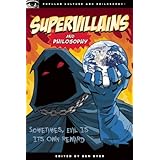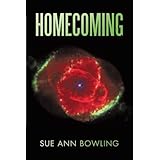
Average Reviews:

(More customer reviews)It's a truism that superheroes are only as interesting as the villains they fight, and at the root of comic book supervillainy is the philosophical problem of evil -- a problem, liberated from its theological context, of value judgments, free will, and right and wrong actions. While this collection's focus on superhuman morality results in a pretty thin book (one that could've been titled, with much less commercial impact, "Comic Book Utilitarianism & Its Discontents"), most of the nineteen essays here have something interesting to say about our moral and intellectual fallibility; that is, our common experience, magnified and exaggerated for the larger than life stories we enjoy in comics, movies, and television.
Things start off well with Ben Dyer's close reading of the graphic novel Wanted (Assassin's Edition) and the perverse moral education of its protagonist, Wesley Gibson; the nihilistic life examined. Robert Arp reads V for Vendetta and argues that its anarchist hero and the fascist government he opposes subscribe to equally evil versions of utilitarian justice. Christopher Robichaud bases a comparison of moral objectivity, moral nihilism, and moral relativity on a careful viewing of the movie Superman Returns (Widescreen Edition). Daniel Moseley asks what the Joker has in common with Friedrich Nietzsche. Libby Baringer analyzes the Hobbesian political dilemma of Marvel's Civil War (Marvel Comics). Andrew Terjesen argues that Dr. Doom's "benevolent" despotism would be preferable for most of us to the rule of the murderous superhero team, the Authority. But my favorite piece in the whole book is a short story by veteran comics writer Dennis O'Neil, who revisits Two-Face's origin story, imagining a strictly religious upbringing for Harvey Dent. If the question most writers seem to ask themselves about the character is "what could turn a good man into a monster?", O'Neil, no slouch at philosophy himself, considers it a loaded question; what if Two-Face's monstrosity was a matter of perception all along?
I frankly lost interest in the geeky metaphysical questions that provoked the book's last four essays. Omnipotence, artificial intelligence, and personal identity are interesting topics, but when I read a question like "just how intelligent is Brainiac?" my mind starts to wander. This is an enjoyable book for the most part, but it would've been more enjoyable if there hadn't been so many damned typos in the text. Couldn't Open Court afford a proofreader?
Click Here to see more reviews about:
Supervillains and Philosophy (Popular Culture and Philosophy)The devil gets his due in the latest entry in the Pop Culture and Philosophy series. Supervillains and Philosophy features an international cabal of philosophers and comics industry professionals conspiring to reveal the dark details - and deeper meanings - lurking behind today’s most popular comic book monsters. Whether it’s their moral justification for world domination or the wavering boundaries they share with the modern anti-hero, everyone's favorite villains generate as much attention as their heroic counterparts. The 20 essays in this accessible book explore the nature of supervillainy, examine the boundaries of good and evil, offer helpful advice to prospective supervillains, and untangle diabolical puzzles of identity and consciousness. All the legends are here, from Dr. Doom and the Spectre to the Joker and the Watchmen, reconsidered through the lens of classic and modern philosophy.
 Get 35% OFF
Get 35% OFF
Click here for more information about Supervillains and Philosophy (Popular Culture and Philosophy)



